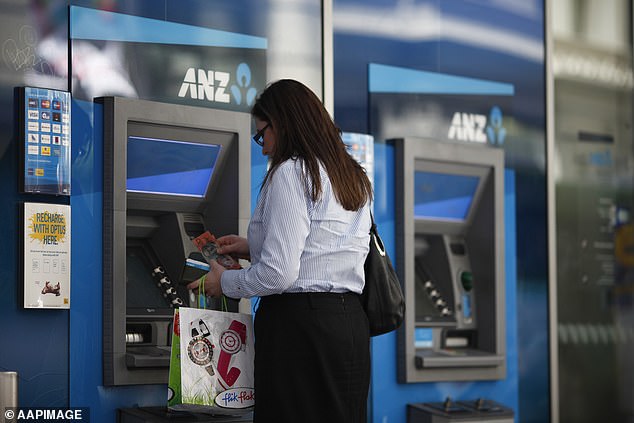Anthony Albanese’s government is unveiling major changes to the way Australians pay – with one payment method set to disappear forever

The Albanian government unveils a plan to protect cash as a means of payment, calling legal tender a ‘lifeline’ for millions.
About 1.5 million Australians prefer cash to digital payments, and in some remote parts of the vast continent it is the only viable option.
Currently, there are no legal requirements for businesses to accept cash if they have another option that doesn’t require customers to pay a fee.
The Ministry of Finance announced late on Sunday that the federal government wants to oblige companies to accept cash for ‘essential matters’.
“People are increasingly turning to digital payment methods, but under the Albanian government there is still a place for cash in our society,” Treasurer Jim Chalmers and Assistant Treasurer Stephen Jones said in a joint statement.
‘The Government will stipulate that businesses must accept cash when selling essential items, with appropriate exceptions for small businesses.’
They said the government was still shaping what is an essential item.
But broadly it would include things like groceries and fuel, with supermarkets, basic banking services, pharmaceuticals, gas stations, utilities and healthcare services.

About 1.5 million Australians still use cash. The photo shows a woman withdrawing money from an ATM
‘For many Australians, cash is more than a means of payment; it is a lifeline,” the Treasury Department officials continued.
“About 1.5 million Australians use cash to make more than 80 percent of their personal payments.
“Cash also provides an easily accessible backup for digital payments in times of natural disasters or digital disruptions.”
Other developed economies that have introduced similar mandates include Spain, France, Denmark and Norway.
Norway was a world leader in the transition to a cashless society, but parliament has passed laws requiring businesses to continue accepting cash amid increased security concerns from Russia.
Building partly on experiences abroad, Mr Chalmers and Mr Jones said that the Treasury would begin consultations on which companies should be covered by the mandate by the end of the year, with a view to introducing a mandate in January 2026.
“The consultation will take into account the needs of those who rely on cash, including people in regional areas and those who cannot use digital payments, as well as the impact on businesses, particularly small businesses,” they said.

Treasurer Jim Chalmers and Assistant Treasurer Stephen Jones say cash is a “lifeline” for many Australians. Photo: NewsWire / Martin Ollman

The federal government wants to oblige companies to accept cash for ‘essential business’.
“It will also discuss what further steps are needed to ensure the long-term and sustainable distribution of cash to enable adequate access.”
The consultation should also consider where exemptions are appropriate.
France’s crackdown makes it illegal to refuse cash payments, with some exceptions, including problems with the cash itself.
Another exception is when there is a safety issue for the trader, such as a shopkeeper working the night shift.
France’s central bank has said that cash “guarantees that everyone has the freedom to choose how to pay.”
The Albanian government also announced that it would commit itself to a gradual abolition of controls.
The goal of the Checks Transition Plan is to “stop being issued on June 30, 2028 and stop being accepted on September 30, 2029.”
“The use of checks has fallen by 90 percent over the past decade and many banks and financial institutions are ending the issuing of checks to new customers,” Mr Chalmers and Mr Jones said.
‘To manage this trend in the sector, the government is acting to provide customers and businesses with the certainty and assistance they need to switch to other payment methods.
“Banks also have a responsibility to support check users as part of this smooth transition.”
They said the plan came after a year of discussions with check users and banks.
“These reforms are all about modernizing Australia’s payments system to ensure our financial sector is competitive, efficient and delivers for the economy and the Australian people,” they said.




